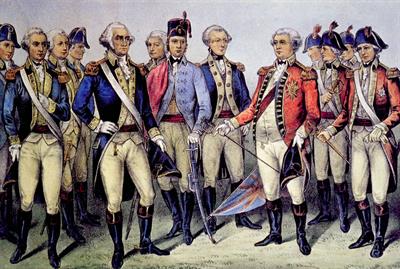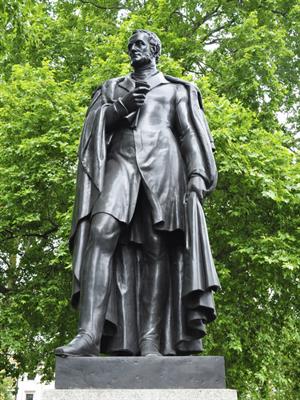PDF chapter test TRY NOW
The Evolution of Police under British:
- One of the important administrative organs of the British was the Police system which they used to control law and order of the country. The Police system slowly evolved under the British administration.
- When the British took control over Bengal, it was under the police system of Mughals in 1765. It had
- Faujdars – In charge of rural districts.
- Kotwals – In charge of towns.
- The control of the Police system was under the Zamindars, where they exerted financial and administrative control over them.
The Cornwallis System of Policing:

Cornwallis with the Police force
- Lord Cornwallis brought changes to the existing police system to bring law and order under control. The crime rates were blowing too high proportions when Cornwallis took charge.
- He replaced British Magistrates in the place of Faujdars, and the Zamindars were left as such. He also introduced a regular force of police in 1791.
- Since the crime rates were not controlled, the Zamindars started misusing their powers, which forced Cornwallis to alter the rules.
- He stripped Zamindars of their powers and brought a new “Thanas or units of police jurisdiction” system, and placed it under Darogas, who British Magistrates appointed.
- The Daroga system, which was extended to Madras in 1802, was later abolished in 1812 after placing police forces under the control of the District, which became the ultimate controller of the Police forces.
Judiciary under British
Warren Hastings period: (1772 – 1785)
- The Governor-general of Bengal Warren Hastings introduced changes under his regime in the field of Judiciary, where he established two courts.
1. Diwani Adalat - For dealing with civil disputes.
2. Faujdari Adalat – for dealing with criminal disputes. - Under the Regulating Act of 1773, a new Supreme Court was established in Bengal during his regime, which had both appellate and original Jurisdiction.
- During later periods, Supreme Courts were established in Madras and Bombay presidencies during 1801\ and 1823\ respectively.
William Bentick Period:

William Bentick
- His period witnessed new avenues in the field of judiciary, where he abolished the circuit courts all over the country.
- New Law commission was established in 1835\ under Macaulay to codify the laws used to rule the country.
- Later the Indian high court’s act of 1861\ paved the way for establishing High courts in Madras, Bombay and Calcutta,which replaced the already existing Supreme courts in these places.
Reference:
William Bentick - Peter Moulton / Shutterstock.com
